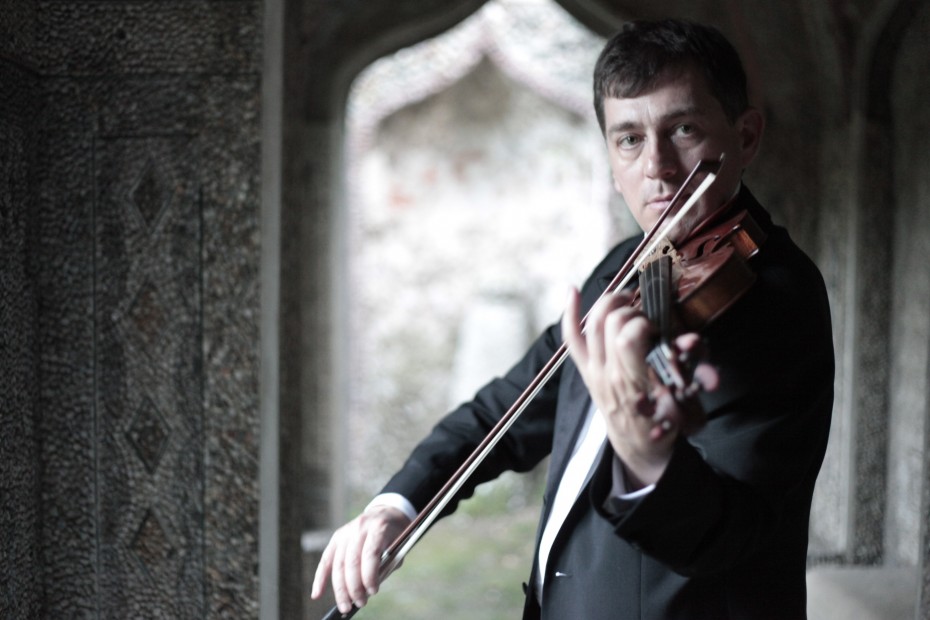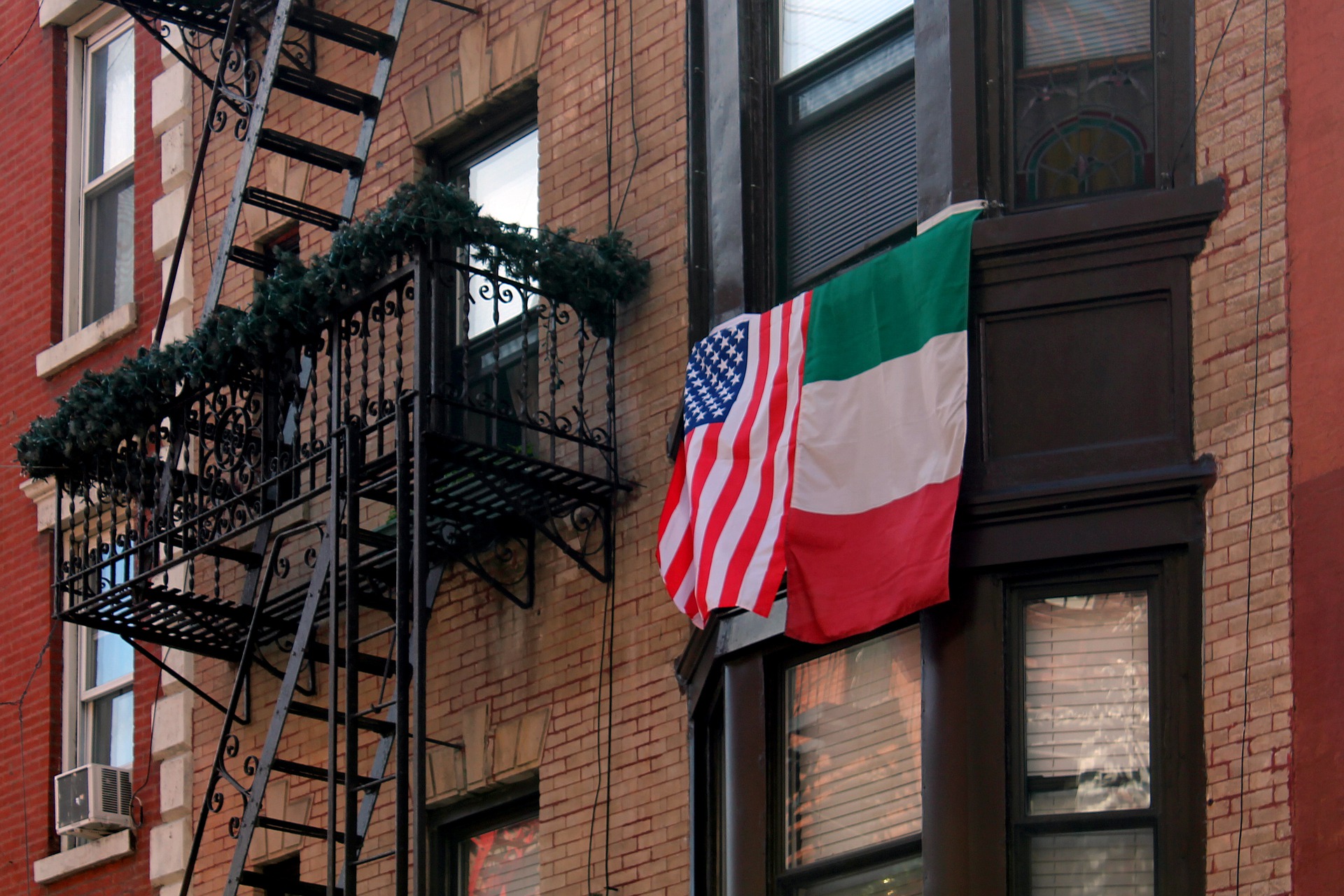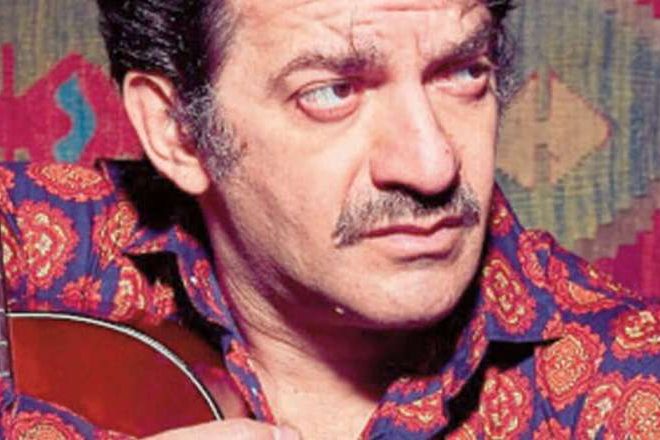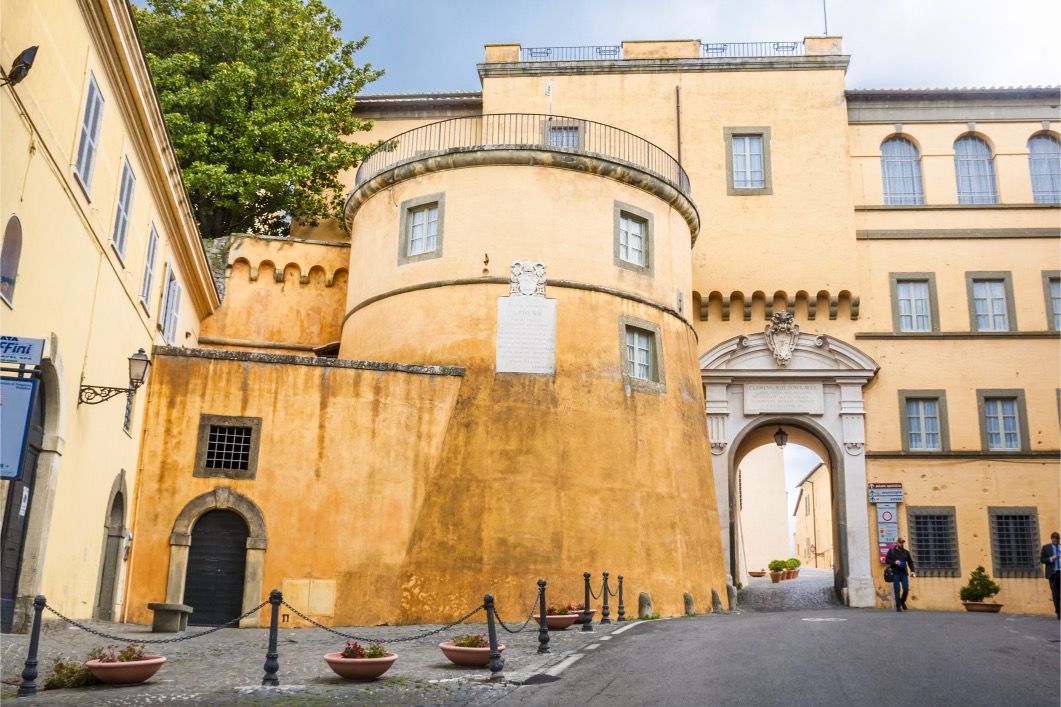Roberto Salvatore Cani was born to Sicilian parents on October 17, 1967 in Milan. His masterly technique as a violinist is corroborated by numerous awards won in prestigious international competitions: from the Paganini Competition (Genoa, 1990) to the Jeunesses Musicales (Belgrade, 1990, first prize and Best Performance of a Contemporary Work), and the Chateau de Courcillon (France, 1991, first prize and Gingold award). He also received top honors in the Tchaikovsky International Competition (Moscow, 1994).
After his debut with conductor Daniele Gatti on January 16, 1987 at the historical Gaveau Hall in Paris, the violinist performed in renowned musical venues across the globe, the likes of the Los Angeles’ Royce Hall, Moscow’s Bolshoi Zal and Tchaikovsky Zal, Belgrade’s Lisinski Hall, Bristol’s St. Georges – Brandon Hill, Tokyo’s Suntory Hall, and Milan’s La Scala.
Currently, Roberto Cani is concertmaster at the Los Angeles Opera Orchestra and has just formed the Glendale Trio, together with pianist Armen Guzelimian and cellist Ruslan Biryukov. Their first concert, honoring the centenary of the Armenian Genocide, will take place on March 28 at the First Baptist Church in Glendale.
Besides playing the instrument, Roberto Cani is also passionate about the art of violin making and masters the basics of woodcraft, particularly regarding to the bows.
As a matter of fact, his interest emerged during childhood, when a Milanese luthier refused to teach him for the boy was meant to be a violinist. Yet in the past, these two careers could be pursued simultaneously: luthier Pietro Guarneri of Venice was also the first violin of the orchestra at Saint Mark’s Basilica in Venice, and even Antonio Stradivari was a talented violinist in Cremona.
What are your first childhood memories relating to music? Did you try other instruments or were you instantly drawn by the violin?
As a child, I was drawn by the violin after my father brought me to one of Uto Ughi’s concerts in Milan, Italy. Ughi performed Tchaikovsky’s Violin Concerto in D major, and I was enthralled by that amazing piece of music, played on such a little instrument with a great sound. I was so inspired that I decided to play violin and to perform the same Concerto one day. Eventually I had the chance to play that wonderful piece, and it was the happiest day of all.
Have you ever experienced a particularly challenging moment, which made you think to give up the violin?
When I was twenty, I moved to Moscow to perfect my technique, practicing ten hours a day with teacher Miroslav Roussin in order to prepare for several competitions. It was a tour de force, as we performed all across Europe with a view to the Wieniawski International Violin Competition in Poland. Without good connections, it can be very difficult to stand out in violin competitions, unless you already are a superstar. Yet I was feeling confident, after winning the contest in Belgrade and the Paganini Competition. However, despite a great performance in Poland, I didn’t pass the first round. After that, I felt disheartened and didn’t touch the violin for a month.
How do you manage between chamber music and your position as L.A. Opera concertmaster? And can you tell us more about the Glendale Trio?
The opera season is not very long. It can be pretty intense, like now that we are working on three different operas. As a musician, I like to think of myself as a sort of “gipsy”, constantly traveling around the world. I love to perform in solo chamber music concerts.
In regards to the trio, I’ve known cellist Ruslan since we studied together at USC. However, we never thought about playing together until recently. I met Armen at the Music Center in L.A. The three of us shared collaborations with the same musicians, and eventually decided to form a trio. So far, the rehearsals are going great and we are looking forward to get more opportunities to perform together.
Some critics have compared you to Niccolò Paganini. For you is that just an honor or also a responsibility?
I remember playing Paganini’s Violin Concerto No. 1 in the 1991 concert in Zagreb: it was a huge success. At some point, my violin shoulder rest fell off and among the excited audience. Somebody from the public offered to hand it back to me, but I didn’t stop playing. The critics commented on that by comparing me to Paganini. It was a real honor.
Armen Guzelimian has played in Robert Altman’s Short Cuts (1993). Do you have any similar experiences, recording film scores?
Yes, I’ve been recording film music for over fifteen years. My favorite film composer is John Williams, one of the very few musicians whose memorable tunes can be hummed by people everywhere. It was wonderful to work with him. And I also had the opportunity to meet his long-standing artistic partner Steven Spielberg, who showed a genuine interest towards musicians.
When you first came to L.A., did you find it difficult to adapt? Is there anything you miss about Italy?
I moved to L.A. in 1992, which means that I’ve spent here half of my life. In the beginning, it was really hard to adapt in such a different city, even if I had traveled a lot previously and lived in Moscow for some time.
I moved to the U.S. following my mentor, the late Russian pedagogue Abram Shtern, who used to give master classes in Italy.
Los Angeles has changed a lot in twenty years. The cultural progress creates more opportunities and quality food products are now available: two essential aspects of Italian life.






























